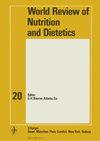Perception and practice of junk food consumption among undergraduate students in a medical university in Chengalpattu District”
4区 医学
引用次数: 0
Abstract
IntroductionJunk foods are defined as processed foods with negligible nutrient value and are often high in salt, sugar, and fat. Junk foods with high sugar content deplete energy levels and the ability to concentrate for extended periods, especially for college students who are forced to consume junk food to curb their hunger as it gives them a sense of pleasure. Due to low prices and affordability, they consume junk food as an alternative to home food. MethodologyThis was a cross-sectional study carried out among undergraduate medical college students in the Chengalpattu district by systematic random sampling. A semi-structured questionnaire which was framed after reviewing similar works of literature was used to assess the knowledge, attitude, and practice regarding junk food consumption. The collected data were entered into MS Excel and analyzed using SPSS version 21. P value <0.05 was considered significant. ResultsOf the 260 participants, 51% were males and 49% were females with a mean age of 20±2.0 years. 65% of the respondents had adequate knowledge regarding the harmful effects of junk food consumption and their BMI scores tended to be in the normal range. 45% of participants felt lethargic after consuming junk food. Chi-square revealed a statistically significant association between the student’s year of study (0.004) and their knowledge score, suggesting that the knowledge level was higher for interns. ConclusionThe present study concludes that most participants had adequate knowledge of junk food consumption patterns. Nutrition counseling regarding a balanced diet and the harmful effects of junk foods may help to curb junk food addiction.成都市某医科大学大学生垃圾食品消费认知与行为研究
垃圾食品被定义为营养价值可忽略不计的加工食品,通常含有高盐、高糖和高脂肪。高含糖量的垃圾食品会消耗能量水平和长时间集中注意力的能力,尤其是对那些被迫吃垃圾食品来抑制饥饿感的大学生来说,因为它能给他们一种快感。由于价格低廉,负担得起,他们消费垃圾食品作为家庭食品的替代品。
方法采用横断面研究方法,采用系统随机抽样的方法对成都地区医学本科院校学生进行调查。在查阅了类似的文献后,我们编制了一份半结构化的调查问卷来评估人们对垃圾食品消费的认识、态度和行为。将收集到的数据输入MS Excel中,并使用SPSS version 21进行分析。P值<0.05被认为是显著的.
结果260例患者中男性占51%,女性占49%,平均年龄20±2.0岁。65%的受访者对垃圾食品的危害有足够的认识,他们的身体质量指数在正常范围内。45%的参与者在食用垃圾食品后感到昏昏欲睡。卡方分析显示,学生的学习年份与他们的知识得分之间存在显著的统计学相关性(0.004),表明实习生的知识水平更高。
结论本研究的结论是,大多数参与者对垃圾食品的消费模式有足够的了解。关于均衡饮食和垃圾食品有害影响的营养咨询可能有助于抑制垃圾食品成瘾。
本文章由计算机程序翻译,如有差异,请以英文原文为准。
求助全文
约1分钟内获得全文
求助全文
来源期刊

World review of nutrition and dietetics
Nursing-Nutrition and Dietetics
自引率
0.00%
发文量
114
期刊介绍:
Volumes in this series consist of exceptionally thorough reviews on topics selected as either fundamental to improved understanding of human and animal nutrition, useful in resolving present controversies, or relevant to problems of social and preventive medicine that depend for their solution on progress in nutrition. Many of the individual articles have been judged as among the most comprehensive reviews ever published on the given topic. Since the first volume appeared in 1959, the series has earned repeated praise for the quality of its scholarship and the reputation of its authors.
 求助内容:
求助内容: 应助结果提醒方式:
应助结果提醒方式:


